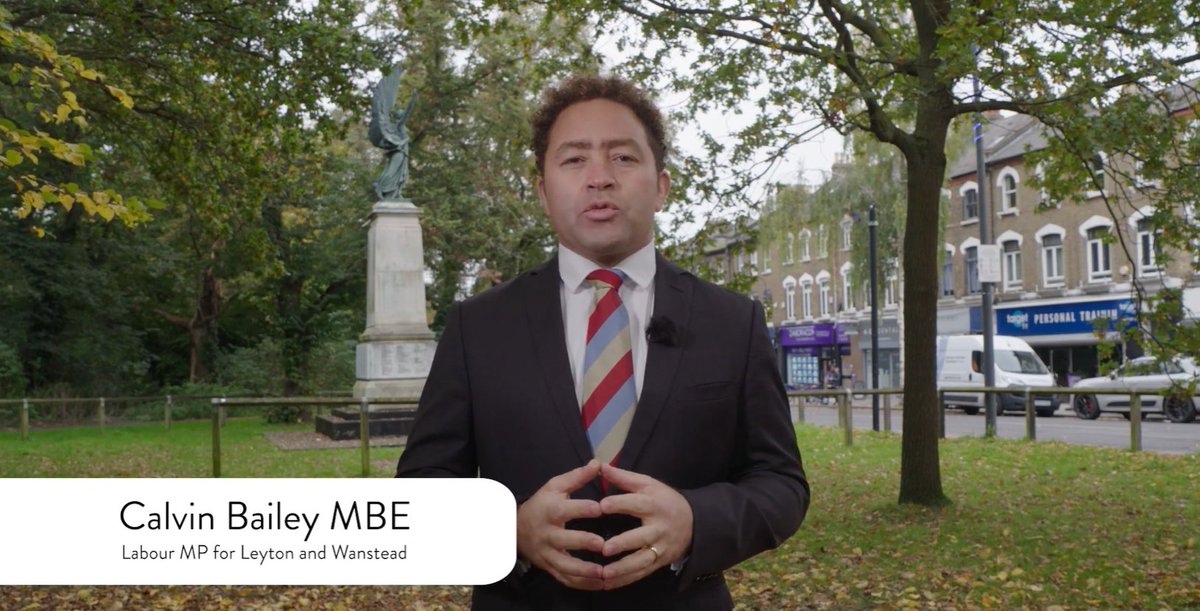Mr Calvin Bailey, MP for Leyton and Wanstead, voted in favour of the second reading of the Terminally Ill Adults (End of Life) Bill
Fr Martin’s Letter to him following this vote.
Dear Mr Bailey
I trust this finds you well?
Re: Terminally Ill Adults (End of Life) Bill
It has now been some days since the passing of the second reading of the Terminally Ill Adults (End of Life) Bill and vote on Friday 29th November. For me, this was not a good Friday but a black one. Therefore, it was important that I allowed something of my own disappointment to settle in order to consider with greater acuity what I wanted to express in this letter.
Firstly, I would like to thank you for your email updates and for explaining your decision to vote in favour of this Bill and its progress to the Committee stage. Apart for some practical decisions, refining of language and tweaks at the edges, I have no doubt that the substantial content of this Bill will pass into law. The Rubicon has been crossed.
I was particularly struck by the weight you gave to the speeches of your colleagues, Marie Tidball and Dr Peter Prinsley along with the personal testimonies of constituents. Their emotive power clearly affected you and intellectually convinced you that “it is not something I can turn away from, and addressing this continuing harm is, in my mind, the strongest reason to progress this Bill.” My italics. If I understand this correctly, you have been moved by accounts of the suffering of the terminally ill and have reached the conclusion that the compassionate way to address this is by the state sanctioned killing of the person who requests to die.
I use the word “killing” intentionally as it would be so easy to substitute it for dishonest euphemisms (for example, “medical aid in dying”) or sleight-of-hand word games that are less abrasive or disturbing to the conscience.
Let me also take this opportunity to thank you for your respectful engagement with me, others within my own community here at Our Lady of Lourdes church (some of whom you met at the Wanstead Tap meeting) and constituents in general. You also indicate that you attended a number of briefing meetings and undertook your own personal research in order to inform your decision on this second reading. I do not underestimate the energy and time that you have expended on this complex issue while I am sure continuing to respond to many other constituency and parliamentary demands. For this, I am grateful.
I watched the full debate in the Commons. To my mind, the debate was serious, compelling and sober-minded. The silence across the House following the announcement of the vote may have contained relief for those whose determination to change the law was now finally within their grasp and sadness for those who viewed this moment as a prising open of a Pandora’s Box. Watching the chamber fall into silence, I felt as if something hidden about our human natures had been exposed.
As you can well imagine, I remain deeply troubled by the outcome. Let me sketch as briefly as possible a couple of reflections. I do so not to attempt to change your mind on this matter (that opportunity has gone and the Commons has made clear its decision in principle) but what follows is simply to articulate what I perceive has come to pass.
The “sanctity of human life” ethic has been a foundational cornerstone of our society. It holds that each of our lives are immeasurably precious regardless of our personal circumstances. Over time, this has been eroded or, indeed, jettisoned entirely throughout much of the West. Those who voted in favour of the Bill have done so on the basis of a “quality of life” ethic. This holds that the value of one’s life is relative to one’s abilities, capacities, and state of health.
This ethical position does not abhor the taking of innocent human life. Rather, it perceives killing as an acceptable means of ameliorating human suffering, particularly if the afflicted person wants to die. In doing so, a culture of death is conceived and the trajectory of its growth and normalisation can be clearly seen in other polities not dissimilar to our own.
Consider how the needle of the moral compass of the Commons has swung so radically in the space of a mere nine years. It is not hard to imagine that it will do so again as this “narrow” Bill is challenged by individual “hard” cases of suffering, activists and pressure groups who wish to exercise their own “autonomy” and access the same assistance in ending their life that has been made available in law to others. On what grounds could those who hold to a quality of life ethic deny these suffering people their request? I predict that this Bill will metastasise and spore more permissive legislation. I hope I am proved wrong.
With this cultural and moral shift, human lives become more atomised and those ethical ties that hold a civilised culture together in mutual dependence and care of each other begin to fray, split and come apart. With the rise of a strident individualism, the survival of the fittest, the slickest and the media savvy flourish. Those bruised by life; those grappling with suicidal ideation; the weak, the inarticulate, the sad, lonely and fearful will be left to the forces of social natural selection.
My political coming-of-age occurred in the 1980’s and I well recall a previous Prime Minister suggesting that in the political and economic spheres there was no such thing as society. Such a view has now bled into the moral sphere where an insistence on an exaggerated autonomy is trumpeted as the highest good for the human person. I do not believe that this understanding makes for the flourishing of a unified civilised society.
However, it is also true that the debate on assisted suicide has brought to our attention the provision of palliative care in our country. You remark that “it is clear that we need more palliative care, and this has been hammered home by discussions I have had with professionals and carers…but I do think the Bill has brought this to the fore and shines a light on our distinct lack of palliative care in Leyton and Wanstead. This is something we need to address regardless.” I agree. The tough question is how does the Government propose to address this issue?
In recent days, there have been many blithe assurances that palliative care will not be allowed to atrophy and that it must be properly funded, resourced and fully integrated into our health care system. However, nowhere in the Labour manifesto (or, indeed, the manifestos of the Conservative Party or Liberal Democrat Party) was palliative care mentioned even in passing. As far as I am aware this issue was not raised by any party during the general election campaign whereas Sir Kier Starmer was quick to promise action on assisted suicide. He proved true to his word by prioritising and facilitating the hasty introduction of this Bill just months into taking office as Prime Minister.
I will be interested to see how the robust assurances that are presently being made and the proposal to set up a commission to advance equitable, “wrap around” palliative care translates into concrete action. All this should have been considered a long time ago and certainly long before consideration of the Terminally Ill Adults (End of Life) Bill. It is embarrassing that I have to resort to threadbare cliches, but, we are, where we are and better late, than never.
I suspect there are those who would seek to rubbish or dismiss my views because of my religious beliefs. Sadly, such prejudicial attitudes were in evidence in the days prior to the parliamentary debate. Although, I am glad to say, not expressed in the debate itself.
I am not ashamed in any way of my Catholic Faith. I readily admit that my faith has confirmed my belief in the sanctity of life from conception until natural death. I believe in the inalienable dignity of every man and woman at every stage of their life. I hope that I would hold those same foundational beliefs by right reason even if I were to possess no religious faith.
Yet, I do have a faith and I believe that the profound struggle between the “culture of life” and the “culture of death” that our age presently witnesses is rooted in the eclipse of the sense of God. When that sense is obscured or lost, the sense of who we are and our relationship to others, particularly our relationship to the weakest and most vulnerable, is easily skewed. At the same time, our rational faculty to choose the good is wounded and falls prey to the manipulation of those who hold power in all its many expressions. Of course, I fully appreciate that my views are not held by others and I am more than happy to be challenged on my beliefs but I make no apology for them.
I also have a particular and personal interest in this Bill. In September 2008, my sister was diagnosed with stage-four breast cancer. She was 39 at the time. Her son was five years old and her husband had just become a secondary school Headteacher.
She was told she would die within six to twelve months. If the Terminally Ill Adults (End of Life) Bill had been in effect at that time, my sister could have been legally prescribed toxic medication to end her life.
If she’d taken it, she would have been spared much physical and emotional suffering: sleepless nights, the sadness of having to retire from her career as a teacher, nausea inducing medications, surgery, the side effects of chemotherapy, the interminable carousel of hospital appointments, tests, scans, the fear in anticipation of results, the heartbreaking knowledge that she would leave her family, the withering of her body, the eventual loss of mobility and the scrambling of her mind as the cancer colonised her brain.
In fact, she went on to live for another twelve years and died a month before the first pandemic lockdown in 2020. A sobering reminder that predicting the date of a person’s death even when done by “experts” can be an inexact science.
Yes, the medication would have spared her untold suffering. But it would have robbed her of much else besides.
The opportunity to see her son, unable to tie his shoe laces at the time of her initial diagnosis, grow into a gangly, spotty teenager mad on football and preparing for GCSE’s. The opportunity for her son to acquire a rich store of memories of his mother that he now treasures.
A time of growth for her marriage vows that matured, were tested and deepened for both my sister and her husband as they experienced together the crucible of suffering. In sickness and in health, to love and to cherish, till death do us part. Those familiar words were given time to take flesh.
The occasion of being at a Kate Bush concert with my sister, her happiness filling the Hammersmith Apollo as we belted out “Cloudbusting”: Ooh, I just know that something good is going to happen/And I don’t know when/But just saying it could even make it happen.
The weekly meetings she treasured with our mum (then in her eighties, now ninety two), sharing intimacies, gossip and little confidentialities over endless cups of tea.
The opportunity to say a long goodbye to friends. The numerous social occasions, the parties and holidays she enjoyed with friends. Old university girl friends travelling across the country to gather by her bedside: laughing, reminiscing, tearful in parting, the day before she died.
The unforeseen opportunities to speak to medics and nurses about her experiences as a terminally ill person and how medical responses to the terminally ill might be deepened or improved.
The chance to be a witness to a life that was purposeful and vibrant even in suffering; an ambassador to hope, a little inspiration for so many— from the people who worked in her favourite café to her medical team at the Royal Marsden Hospital.
The opportunity to see the kindness of strangers and what the care of accompanying someone to death should and can be. In the final weeks of her life, she was moved from St Francis Hospice back to her home in Wanstead. Eventually, carers had to be organised and two young Muslim women came in three times a day. My sister called them “the aunties”. They cared for her, fed and cleaned her, helped her with medication, sat patiently with her for hours on end. Those women had big and fierce hearts. They knew what made us human and what made for a good death. They allowed my sister to go gently into that good night and the embrace of God.
The list could go on…
In February this year I was diagnosed with cancer. I have undergone surgery and more recently, chemotherapy. I now travel the same hospital corridors as my late sister. I hope that when my final months come that there will be “aunties” waiting for me.
There is something more painful than physical suffering, worse even than death: being made to believe, consciously or unconsciously, that your life is worthless, that you are no longer a person but a burden, an intractable problem to others and that you would be better off dead. Assisted suicide speaks this evil lie and, with time, the lie will be accepted as truth.
A political thought. I have a friend who has worked at the heart of government. I mentioned to her that you had kindly taken the time to write me a handwritten note in response to my initial letter. She replied that “our new MPs bode well for the future.” I trust her judgement, with the reservation that I want to see how that future is forged, what it holds and, vitally, who it deems worth holding.
Finally, let me take this opportunity to wish you and your family a peaceful and happy Christmas.
Sincerely
Fr Martin Boland
2 December 2024


